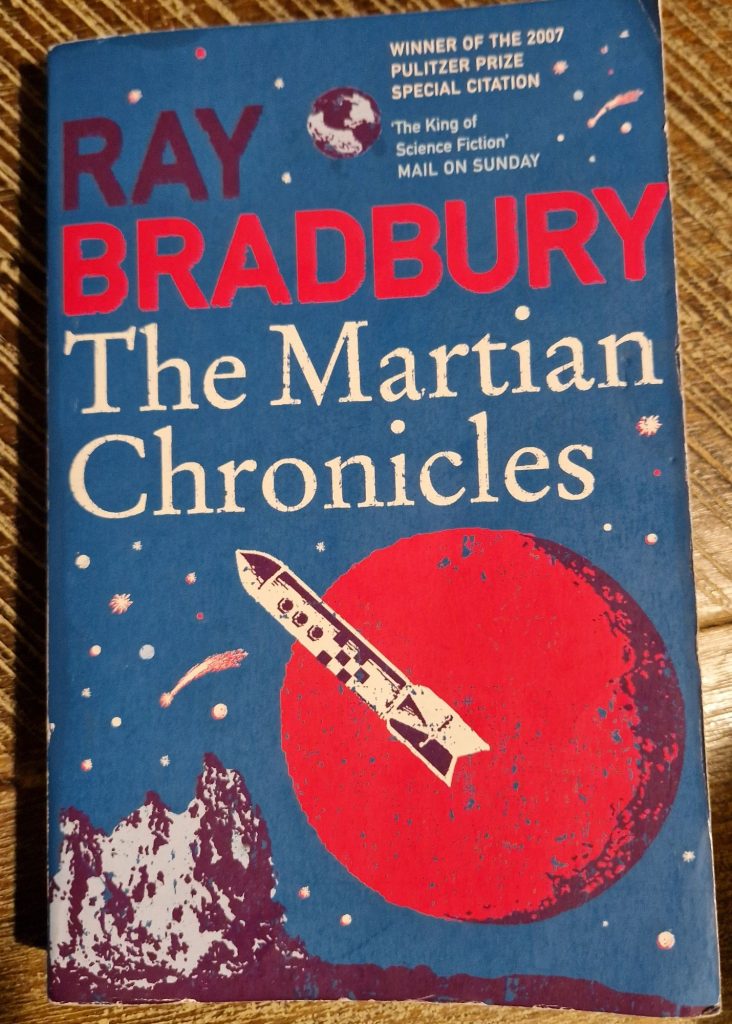
It’s fun to read a sci-fi book referencing was-future dates that are now in the past. Ray Bradbury’s book “The Martian Chronicles” was written at the start of the atomic age in 1951 at the height of the Hollywood Blacklist era and Cold War paranoia.
The book was authored before the Mariner missions and their definitive confirmation of Mars being a cold dry ancient world, now devoid of surface water but with tantalising evidence of a watery past.
The book describes a fictitious Mars populated with still-living native Martians and their works including the famous canals postulated by Lowell and Schiaparelli.
There is a beautiful quote from Ben Jonson in the book:
Drink to me only with thine eyes,
And I will pledge with mine;
Or leave a kiss but in the cup,
And I’ll not look for wine.
Atomic age paranoia is a key theme of the book. A lot of fear for the future is exhibited by the largely American cast. In the book, while many people are moving to Mars to escape their challenging lives and fears, in the story, most of them ultimately return to earth before its inexorable doom. While the people who travelled to Mars brought their religious beliefs and prejudices with them, Bradbury takes an interesting slant showing how the Martians exhibited enlightenment and wisdom which the newly arrived earth clerics found inspirational.
Racism and xenophobia certainly play a part in the stories. One of the passages described the shock which some white people felt when a large African American diaspora to Mars was occurring. A description of how the black people left their belongings neatly piled at the roadsides on the way to the launch site was poignant and strange.
The concepts of loss and redemption are explored throughout. How people felt being so far from their original home. The pain of grief and missing dead children and relatives.
The book is a vehicle for describing the hopes and dreams of any emigrant frontier group trying to survive and thrive in a new place. While this book would traditionally fit under the ‘classic sci-fi’ canon, Bradbury had a lot to say about who we are as ‘humanity’. A worthwhile read for anyone interested in the mindset of the cold war generation.
